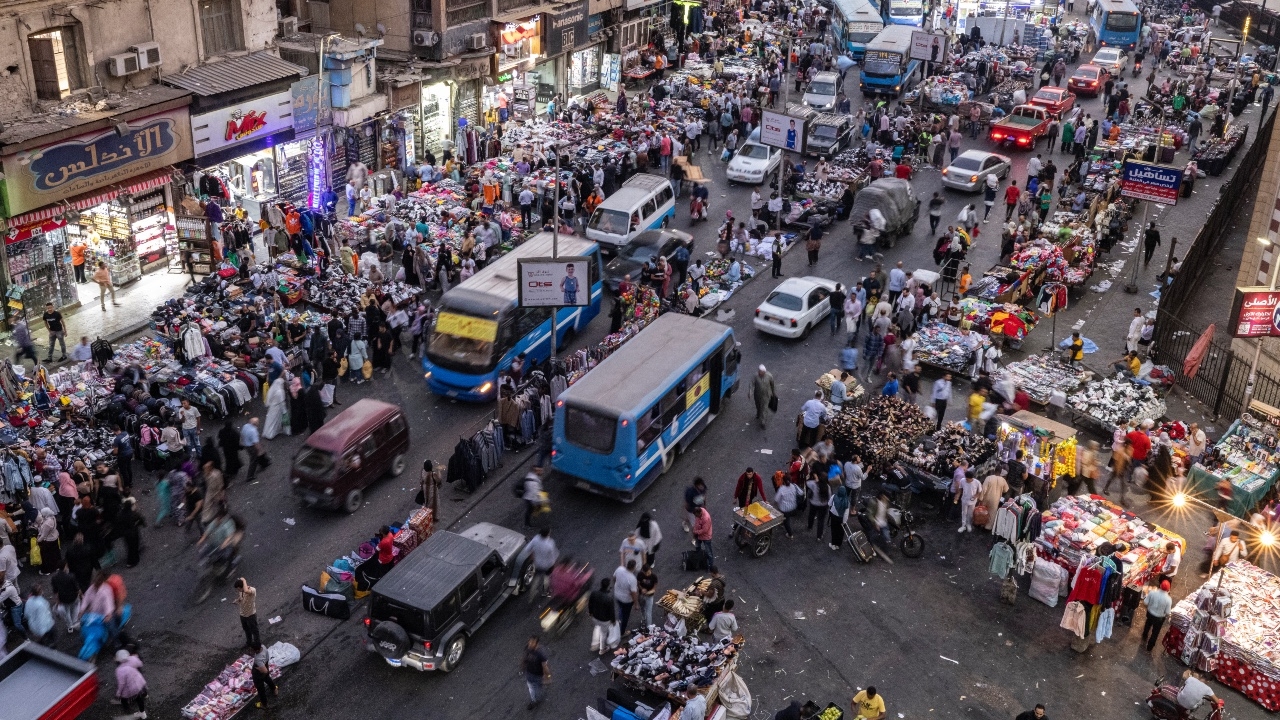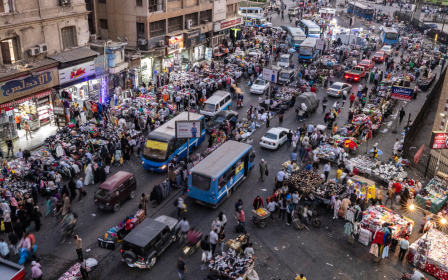Egypt to begin clearing backlog of imports, Sisi says

Egypt's banks will begin providing the dollars necessary to clear a logjam of imports that have accumulated at Egyptian ports in the coming days, President Abdel-Fattah El-Sisi said on Monday.
Egypt has been dealing with shortages of food, medicine and household goods as a result of its depreciating currency and a strengthened US dollar.
Egypt needs US dollars to repay about $158 billion in foreign debt over the coming years, but it also needs foreign currency to pay for its voracious appetite for imports.
In response to the crisis, Egypt's government implemented a series of import restrictions, making it harder for businesses to access fresh dollars, including a rule mandating companies to obtain letters of credit for foreign purchases.
At the same time, economists suspect Egypt's central bank has been tapping into its foreign currency reserves to try to prop up the sagging pound.
New MEE newsletter: Jerusalem Dispatch
Sign up to get the latest insights and analysis on Israel-Palestine, alongside Turkey Unpacked and other MEE newsletters
The result has been a pile-up of imported goods at Egyptian ports and shortages of products throughout the country.
Egypt's Prime Minister Mostafa Madbouly said progress had been made in clearing up the backlog, stating that around $5 bn worth of commodities had been released from ports in the past several weeks, but that another $9.5 bn in goods remain stuck.
Egypt's pound has been pummelled this year, losing close to 50 percent of its value against all foreign currencies, especially the greenback. Egypt's import-dependent economy has been hit particularly hard by the war in Ukraine.
In an effort to protect their shrinking savings, ordinary Egyptians have rushed to buy gold, leading some analysts to warn of a price bubble in the commodity.
The president's comments come as Egypt is expected to announce another devaluation in its currency, which is likely to add to inflationary pressures.
Egypt, already the second most indebted country to the IMF, returned to the lender in October for an additional $3bn loan. As part of the agreement, the bank has pressed Cairo to allow greater flexibility in its exchange rate.
The currency devaluation is intended to unwind external imbalances, boost Egypt's competitiveness, and attract foreign direct investment - but has added to price pressures being felt by ordinary Egyptians.
While energy-rich Gulf states have stepped up investments in the country, analysts previously told MEE that global investors were hesitant to tie up their money in a country where the military and state maintain a stranglehold on the economy.
Middle East Eye delivers independent and unrivalled coverage and analysis of the Middle East, North Africa and beyond. To learn more about republishing this content and the associated fees, please fill out this form. More about MEE can be found here.





